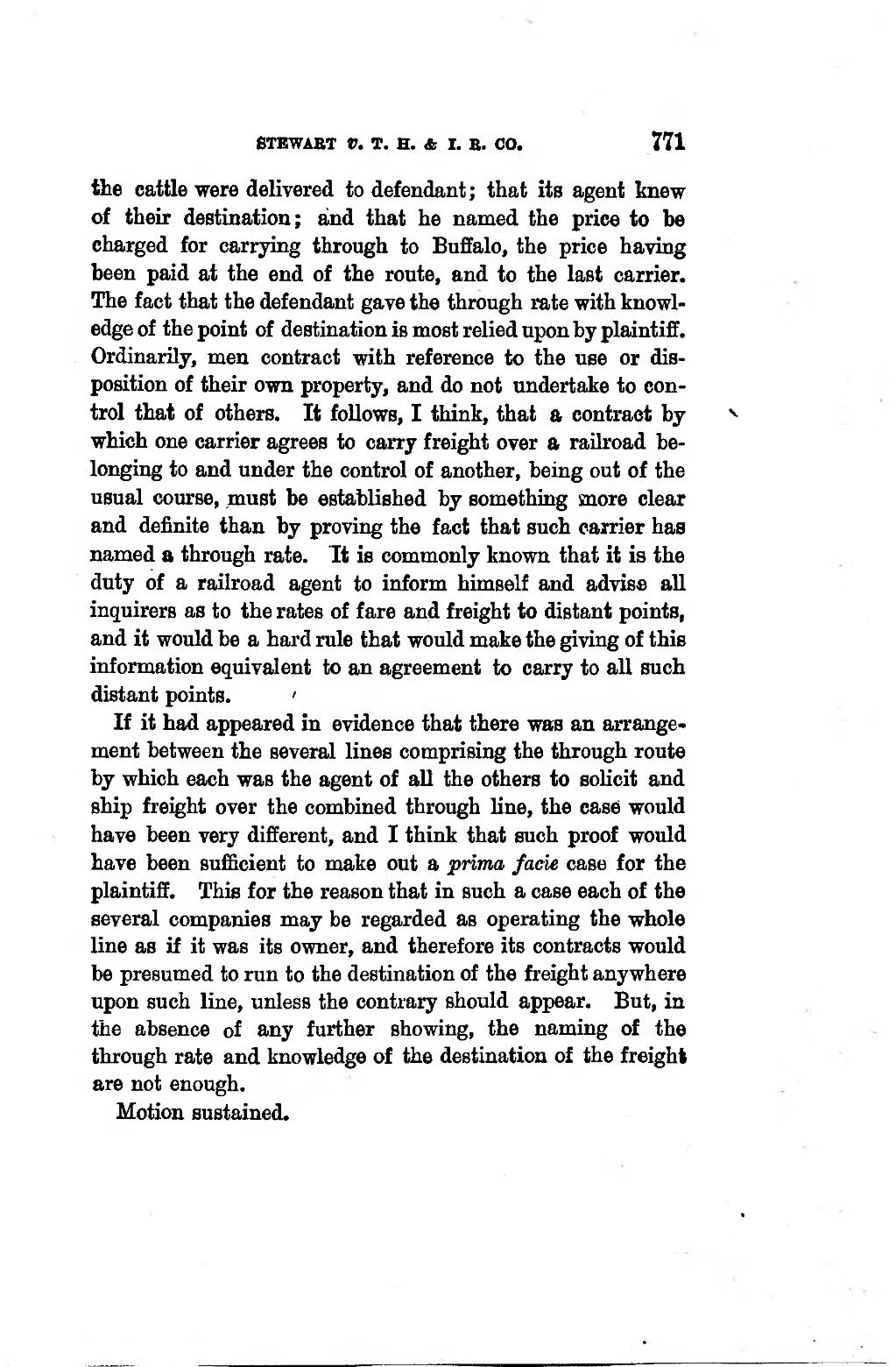fiTEWABT V. T. H. <fe I. E. CO. 771 �the cattle were delivered to defendant ; that its agent knew of their destination; and that he named the priee to be charged for carrying through to Buffalo, the priee having been paid at the end of the route, and to the last carrier. The fact that the defendant gave the through rate with knowl- edge of the point of destination is most relied upon by plaintiff . Ordinarily, men contract with reference to the use or dis- position of their own property, and do not undertake to oon- trol that of others. It follows, I think, that a contract by which one carrier agrees to carry freight over a railroad be- longing to and under the control of another, being out of the usual course, must be established by something more clear and definite than by proving the fact that such carrier has named a through rate. It is commonly known that it is the duty of a railroad agent to inform himself and advisfi all inquirers as to the rates of f are and freight to distant points, and it would be a hard rule that would make the giving of this information equivalent to an agreement to carry to all such distant points. ' �If it had appeared in evidence that there was an arrange- ment between the several lines comprising the through route by which each was the agent of all the others to solicit and ship freight over the combined through Une, the case would have been very different, and I think that such proof would have been sufficient to make out a prima fade case for the plaintiff. This for the reason that in such a case each of the several companies may be regarded as operating the whole Une as if it was its owner, and therefore its contracta would be presumed to run to the destination of the freight anywhere upon such Une, unless the contrary should appear. But, in the absence of any further showing, the naming of the through rate and knowledge of the destination of the freight are not enough. �Motion sustained. ����
